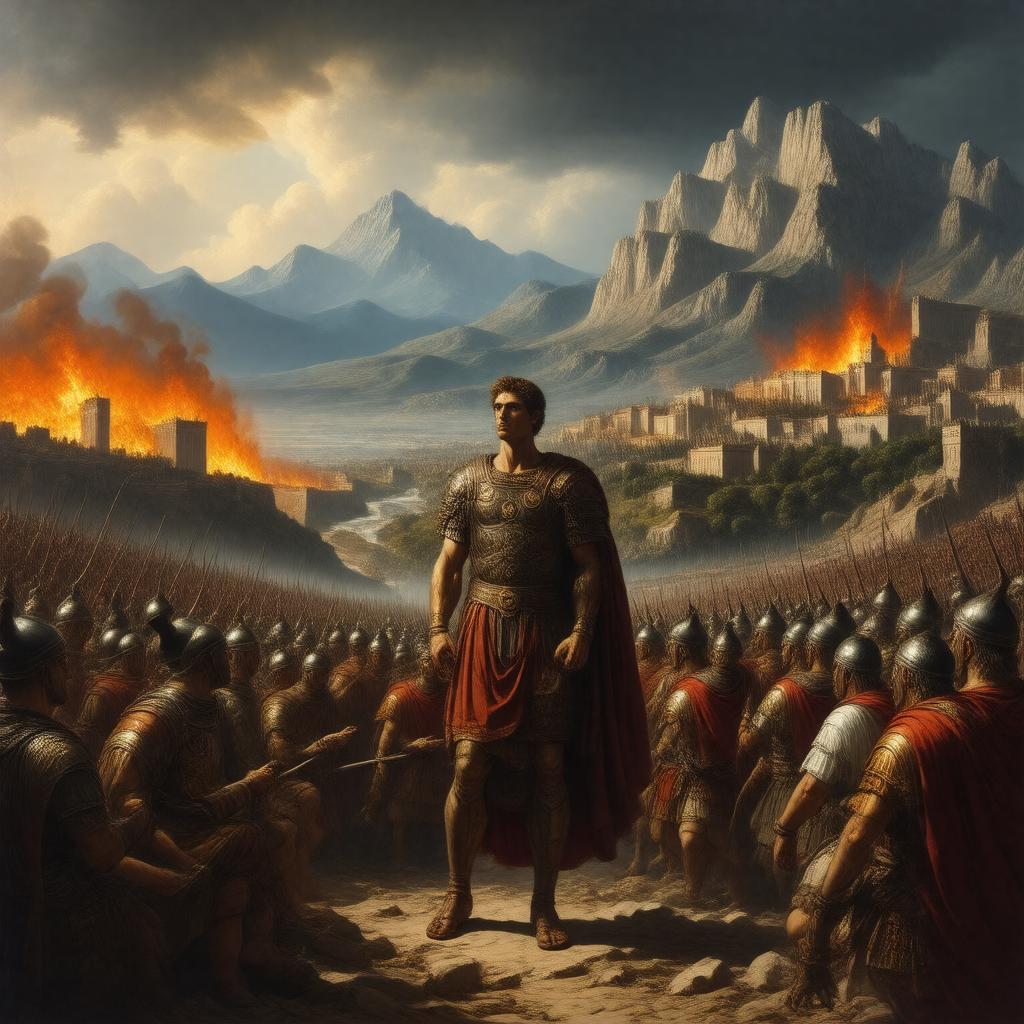Prompt
"Create an image of a dramatic scene from the Aeneid, depicting Aeneas standing heroically in the foreground, with the city of Troy burning in the background, surrounded by a chaotic battle scene with Greek and Trojan warriors clashing, and Mount Ida looming in the distance, in a classical, epic style reminiscent of ancient Roman art."

